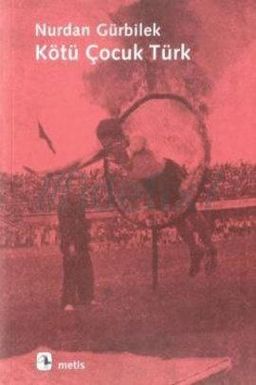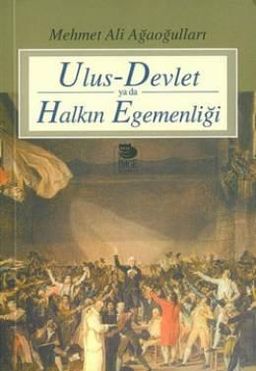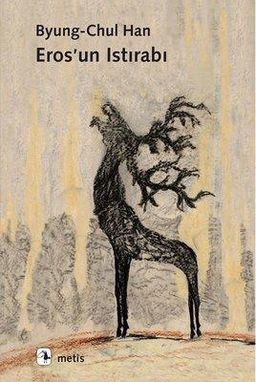Ömer Faruk Alişan
@omeralisan
Doktor
Malatya Fen Lisesi, Ankara Üni. Tıp Fakültesi
Rize, Fındıklı
Rize
19 okur puanı
Mart 2023 tarihinde katıldı
Şu anda okuduğu kitap
Türkiye'de büyüyen her çocuk küçük yaştan itibaren gazete ve televizyonlarda eşkiyanın, şakinin, anarşistin ya da teröristin, adı dönemden döneme değişen bu aynı lanetli yaratığın ölüsünü görerek, başlangıçta yadırgadığı o "Dehşet!" imgesini kanıksamayı öğrenerek büyür. İnandırıcı bir ideolojiyle bile değil, çoğu zaman düpedüz yalanla kurulmuş bir politik mesajı; "hayat" sözcüğünü düpedüz ölümle, "şefkat" sözcüğünü düpedüz kıyıcılıkla özdeşleştiren bir devlet politikasını erken yaşta içselleştirerek, bu kıyıcılığa karşı çıkmak için kendine ya da başkalarına aynı ölçüde kıyıcı olmayı göze alamıyorsa hiçbir şeye bulaşmamak gerektiğini öğrenerek yetişkinliğe geçer. Bu yüzden siyasi cinayetlerin, faili meçhul ölümlerin ülkesinde ölüm görüntülerine daima bir siyaset korkusu da eşlik eder
Okur Takip Önerileri
Fransız Devrimi, birçok düşünür tarafından bireyciliğin büyük bir zaferi olarak nitelendirilir. Bireycilik, "geleneksel toplumun üze rinde yapılandığı topluluklar [ tabakalar-cemaatler] içi bağ ların ve bağımlılık ilişkilerinin yıkılınası ve aynı zamanda siyasal iktidarın karşısında bireysel bir özerklik alanının tanınması" 79 düşüncelerini içerir. Bu düşüncelerin ulaştığı nokta ise, devletin, prensin mülkü olmaktan çıkıp ortak iyiliğin ve çıkann gözetildiği kamusal alana dönüşmesidir. Gerçekten de Devrim'e bu açıdan yüzeysel bir biçimde yaklaşılırsa, onun bireycilik projesinin gerçekleşmesi ol duğu ileri sürülebilir.
Ona göre bu düzenin kabul edilemezliğinin ana gerekçesi, ayrıcalıkların akıldışı ya da doğal hukuk karşıtı olmasıdır. Daha açıkçası, her tür ayrıcalık, "başkalarına hiç zarar verme" şeklinde dile geti rilen temel doğal yasaya aykırıdır. Çünkü ayrıcalığın an lamı, bunu kullanan kişiye "başkalarına zarar vermek için size izin var" demektir. Dolayısıyla "bütün ayrıcalıklar, nesnelerin doğası gereği, haksızdır, iğrençtir ve her siyasal toplumun yüce ereğiyle çelişiktir. "
Ayrıcalıklar Üzerine Deneme, s. 129. Ayrıca aktaran: Bredin, 1988(1), s. 80. Benjamin Constam'a inanmak gerekirse, Sieyes, soylutara duydugu düşman lıgı bir ara şöyle dile getirmiştir: "Benim türümden olmayan kişi, benzerim de olmaz; bir soylu benim türümden degildir, dolayısıyla bir kurnur o, üze rine ateş ederim onun"
Devlet çıkarı ya da or tak yarar kavramlarının ardına sığınarak herhangi bir yurt taşın haklarının ve özgürlüklerinin elinden alınması ya da yaşamının topluma feda edilmesi, bütünün (yani siyasal toplumun) yaratılma nedeninin ortadan kalkması demek tir. Bu durumda, varlık nedeniyle birlikte bütün de yok olup gider
Locke, Montesquieu gibi düşünürler, egemenliğin bö lünmez olduğu bir sistemde bireyin bütüne feda edildiğini ileri sürerek, bireysel özgürlükleri korumak adına devlete içkin egemenliği (özellikle kullanım bakımından) parçala yıp erkleri farklı ellere dağıtırlar. Oysa Rousseau'ya göre devletin zayıflanlmasına yönelik bu düzenleme, istenile nin tam tersi bir sonucun dağınasına yol açar. Çünkü egemenliğin bölünerek güçsüzleştirilmesi (hatta yok edil mesi), dolayısıyla devlet otoritesinin küçültülmesi, kaçı nılmaz olarak bireysel özgürlükleri yok edecek çeşitli ikti dar odaklarının belirmesine neden olur. Devletin halkın iradesiyle özdeşleşen iradesini ya da bu iradenin işlemleri olan yasaları bütün yurttaşiara dayatıp kabul ettirme er kinden yoksun kalması durumunda, toplumdaki güçsüz kişiler güçlülerin insafına terk edilmiş olur. Güçlünün hak kı ilkesi yeniden işlemeye başlar. Insanların insanlara ba ğımlı kılındığı böyle bir ortamda yalnızca özgürlükler de ğil, yaşamlar bile büyük bir tehdit altındadır. lşte, bu kötü lüğü engellemenin ve bu bağımlılığa son vermenin tek yo lu, devleti, bütün bireyleri her türlü oligarşiden koruyabi lecek denli büyük bir güçle, yani bireylerin sözleşmeyle ona verdikleri "ortak güç"le donatmaktır.
Varlığım Türk varlığına armağan olsun
Rousseau'nun deyişiyle, "iyi toplumsal kurumlar, insanın doğasını tam olarak değiştirmeyi, mutlak varoluşunu yok edip ona göreedi bir varoluş vermeyi ve benliğini ortak birlik içine yerleştirmeyi bilen kurumlardır; böylece her birey, kendisini bir olarak değil, ama birliğin bir parçası olarak algılar ve varoluşunun duygusuna ancak bütünün içinde sahip olur
ya sev ya terk et
Bu nedenle Rousseau, ergenlik çağına ge lip de ülkesini terk etmeyen her bireyin, atalarının yapmış olduğu sözleşmeyi zımni olarak kabul ettiğini belirtir. Bir başka deyişle, bireyin bir ülkede oturmayı seçmiş olması, onun toplum sözleşmesini ve bu sözleşmenin kendisine kazandırdığı haklar ile yüklediği ödevleri kabul etmesi demektir.
Bireysel iradelerin sözleşmenin yapımı sırasında bu denli belirleyici olduklannın kabul edilmesiyle birlikte, oluşan "bütün"ün (toplumun) bireysel iradelerin bir top lamı olduğu sonucuna vanlabilir. Bu da, çıkılmak istenen durumdan çıkılınadığı anlamına gelir; daha açıkçası, söz leşme öncesi var olan bireysel iradeler arası çatışmacı or tam, olduğu gibi sözleşme sonrasına aktanlmış olur. Oysa Rousseau, böyle bir anlayışa meydan vermemek için, orta ya çıkan bu gücün, bu kamusal bütünün kendine özgü bir kişiliği ve bir iradesi (genel irade) olduğunu açıklamıştı. Durkheim'ın deyişiyle, "bu gücün kendine içkin bir birliği vardır; çünkü onu yaratan öğeler [bireyler], onun içine gi rerek, bir bakıma bireyselliklerini ve kendilerine özgü de vinimi yitirmişlerdir. "
Sanatların insanların davranış larını biçimlendirmediği ve tutkularına yapay bir nitelik kazandırmadığı dönemlerde, "görenekler kaba, ama do ğaldı". Bu yüzden insanlar, "birbirlerinin ruhuna kolaylık la nüfuz edebiliyorlardı"
"Dilbilimden sosyolojiye, insan davranışına dair bütün teorileri terk edin. Taksonomiyi, ontolojiyi, psikolojiyi unutun. İnsanların davranışlarının ardındaki nedenleri kim bilebilir ki? Esas önemli olan, böyle davranıyor olmaları ve biz de bunu emsalsiz bir doğ rulukla ölçebiliyoruz. Elinizde yeterli veri olduğunda, rakamlar her şeyi açıklıyor."



